
Articles by Nepal
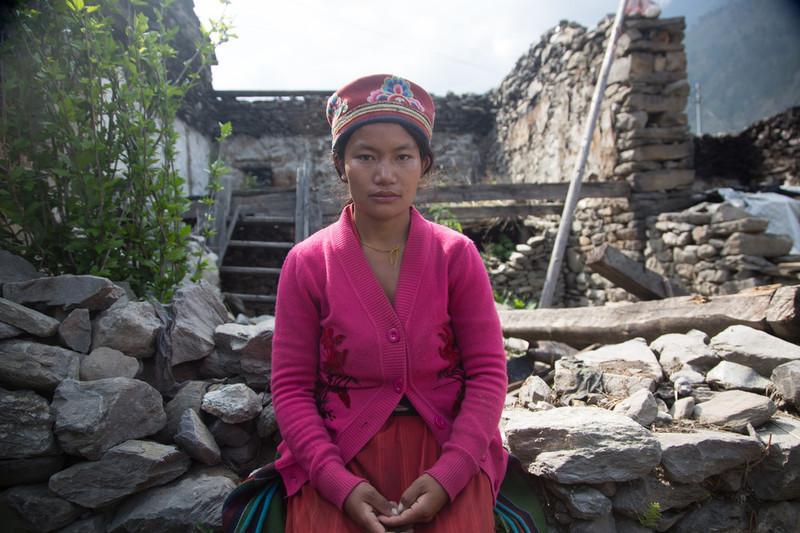
Taking health and care to rural mountain villages when disaster strikes
The earthquake that struck Nepal in April 2015 caused devastation and destruction that the country has still not recovered from. Almost 9,000 people lost their lives and over 22,000 were injured in Nepal’s worst natural disaster for 80 years. The earthquake severely disrupted access to healthcare and family planning. Thousands of people were displaced far from their usual clinics or support networks. In the days and weeks after the earthquake, the Family Planning Association of Nepal (FPAN) took action to make people’s health and family planning needs a top priority. Within 48 hours they were running emergency health camps across the country, dispensing medicines and bringing vital, changing support to thousands of survivors. Photography © IPPF/Jon Spaull

Breaking through barriers to family planning in 21st-century Nepal
The past 15 years have been turbulent for this small, landlocked country. Poverty is widespread and the earthquake of 2015 had a devastating effect. Almost 9,000 people were killed and over 22,000 injured, while the effect on houses and buildings was catastrophic: around 800,000 homes were destroyed or damaged, and 3 million people were displaced. The earthquake hit Nepal’s health sector hard. Clinics were destroyed up and down the country, and for the millions displaced from home and forced into tents, accessing health services – including family planning – became difficult, sometimes impossible. Contraception and family planning: the issues Even before the earthquake, family planning in Nepal was fraught with problems. Around 14 million Nepalis live in mountainous or hilly regions, often in small, remote villages many miles from the nearest town, where health facilities are often scarce, understaffed and poorly supplied with drugs. Where roads exist, they are often potholed, sometimes impassable, making road travel arduous. For the millions of Nepalis living beneath or near the poverty line, travelling on foot is the only option, and, even when they can afford to rent a space in a car, vehicles are scarce. “When I was about to give birth, we called for an ambulance or a vehicle to help but even after five hours of calling, no vehicle arrived,” recalls 32-year-old Muna Shrestha. “The birth was difficult. For five hours I suffered from delivery problems.” Every year, tens of thousands of Nepalis give birth without any medical help at all: just 36% of births are attended by a doctor, nurse or midwife. Maternal mortality is one of the leading causes of death among women. Myths, misconceptions and cultural resistance to contraception A lack of knowledge about family planning and contraception compounds the issue – a problem that becomes even greater among Nepal’s many rural communities and certain ethnic groups. In thousands of households, hostility towards family planning has its roots in deep-rooted customs and beliefs. In Nepal’s largely patriarchal culture, it remains the norm for couples to have four or more children: preference for sons means women are forced to go on having children until boys are born. Contraception remains an alien, uncomfortable idea for millions of Nepalis and is tightly controlled by men: women often need consent from their husbands to use contraception. Misconceptions are also rife. “I’ve heard the coil can cause cancer,” says Muna Shrestha, a farmer from Kavre district. “There are so many side effects to these devices.” In many households, contraception is deemed to fly in the face of ancient cultural traditions. “It’s thought that men who have had vasectomies won’t be able to perform the rituals after their parent’s death,” explains Binu. “Parents think that God won’t accept that, so they don’t allow men to have vasectomies.” Pasang Tamang, an FPAN volunteer in Gatlang, tells of one man who threatened to kill his wife, the doctor and any health worker who provided family planning services to his wife. Spreading knowledge to remote regions Meeting the family planning needs of Nepal’s 28 million people, particularly those living in remote mountain villages, takes careful planning, complex logistics, skilled staff and money. Since 1959, the Family Planning Association of Nepal (FPAN), has been providing better access to family planning and maternal health, ensuring its services penetrate even the most remote corners of this rugged mountain country. Reaching communities in far flung parts of this mountainous country is a logistical challenge, but one FPAN sees as crucial to its work. Teams of staff and volunteers spend days travelling by vehicle or, if necessary, on foot to make sure they reach people. “Accessibility is a big challenge, especially in rainy season when the road gets blocked and our staff have to walk carrying all the devices,” says Devendra Amgaim, FPAN’s project coordinator in Rasuwa, northern Nepal. “I go to remote places, where people and don’t know about family planning,” says Binu Koraila, an FPAN staffer in Rasuwa. Her role is spread knowledge about family planning and contraception among rural communities and to train the government workers who staff the health posts, many of which are many hours’ walk from the hamlets and villages that perch on the Langtang mountains. Cultural beliefs High up in the mountains of northern Nepal, close to the border with Tibet, lies the village of Gatlang. This cluster of timber-framed houses and Buddhist stupas is home to some of Nepal’s 1.5 million Tamang people, an ethnic group with cultural traditions stretching back centuries. Life here is strictly patriarchal. Marriage often takes place young – from around 14 years old – and girls are given little choice about when or whom they will marry. “My parents forced me to get married,” says 20-year-old Jomini. Jomini married at the age of sixteen, to a man eight years her senior. “It’s not easy being married, it’s difficult,” she says. “When I got married, I didn’t know anything about what happens after marriage, about the physical side … and after the birth of my first child I had many difficulties.” According to Nepali law, marriage under the age of 20 is illegal. But over 40% of 20 to 24 year olds are married before they turn 18. The effect on girls’ lives can be devastating: physical problems from teenage pregnancy, psychological trauma, thwarted education and employment opportunities are widespread, particularly in remote regions. Access to contraception means nothing unless people understand why it is important and make the decision – armed with the correct information – to use it freely themselves. Busting the myths that can shape people’s ideas about family planning is complex but vital. FPAN does it by spending time and resources on teams who go in and talk to women and families in ways that are tailored to their needs. “Rasuwa district has a very low literacy rate, so FPAN … gives people the right information about family planning using visual aids, images and charts,” Devendra Amgaim explains. “Reproductive health female volunteers also translate information into local languages. All this helps make information simpler, more effective and easily understandable.” The organisation strives to make sure it is sensitive to the structures that shape life in Rasuwa. This is also pragmatic: once you have won the trust and confidence of community leaders, it is much easier to talk to the rest of their community. “FPAN seeks out the people who have influence in the communities – the religious leaders, the teachers, the female voluntary workers,” Devendra says. “We give them orientation and knowledge regarding those misconceptions. They then create awareness.” Stories Read more stories from Nepal
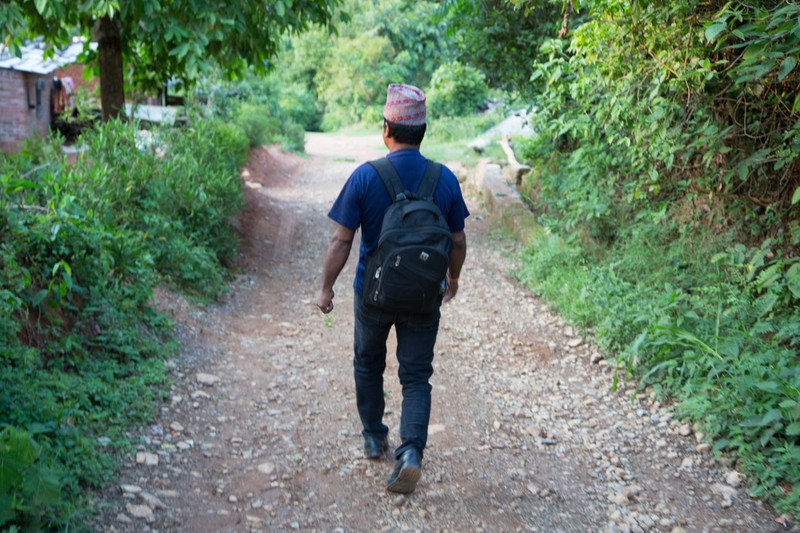
Bringing contraceptive choice to mountain communities
Meeting the family planning needs of Nepal’s 28 million people, particularly those living in remote mountain villages, takes careful planning, complex logistics, skilled staff and money. Since 1959, the Family Planning Association of Nepal (FPAN), has been providing better access to contraception and maternal health, ensuring its services penetrate even the most remote corners of this rugged mountain country. Reaching communities in far flung parts of this mountainous country is a logistical challenge, but one FPAN sees as crucial to its work. Teams of staff and volunteers spend days travelling by vehicle or, if necessary, on foot to make sure they reach people. Stories Read more stories from Nepal
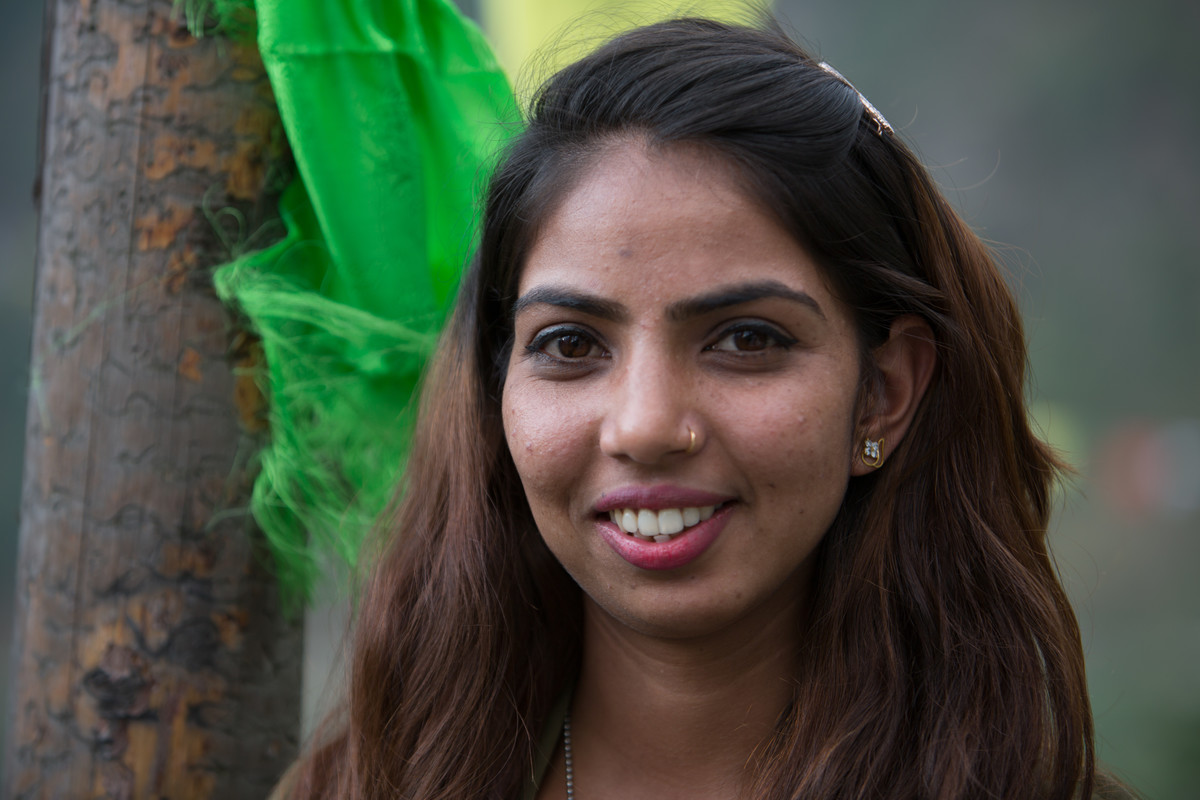
How cultural traditions affect women’s health
High up in the mountains of central northern Nepal, not far from the Tibetan border, lies the district of Rasuwa. The people here are mainly ethnic Tamang and Sherpa, two indigenous groups with cultural traditions stretching back centuries. But these rich cultural traditions can come hand-in-hand with severe social problems, compounded by entrenched poverty and very low literacy rates. Binu Koraila is a health facility mentor for the Family Planning Association of Nepal (FPAN) in Rasuwa. "Stigma, myths and cultural practices can have a damaging effect on sexual health, family planning and women’s rights", she says. Misconceptions about contraception are widespread. “People think the intrauterine coil will go into the brain or will fall out. They think the contraceptive implant will penetrate into the muscles.” Funeral rites present another problem. “Men who want a vasectomy need permission from their parents,” she explains. “But it’s thought that men who have had vasectomies won’t be able to perform the rituals after their parent’s death: parents think that God won’t accept that, so they don’t allow men to have vasectomies.” The culture here is strongly patriarchal. Among the Tamang, marriage involves boys or men picking out young girls from their communities.Early and forced marriage is widespread among the Tamang. If chosen, the girls have no choice but to get married. “If a boy likes a girl, they can just snatch them and take them to their house,” Binu says. Some girls are as young as 13 years old. “The girls don’t know enough about family planning, so there is a lot of teenage pregnancy.” Early marriage and teenage pregnancy can create all kinds of physical, emotional, social and economic problems for girls and their families. For many, their bodies are not well developed enough for childbirth, and maternal mortality remains a major problem in Nepal, at 258 deaths per 100,000 live births, according to UNFPA data. Their large families also suffer because there is not enough food and money to go around. “Women are the worst affected,” Binu says. Parents and husbands keep strict control of women’s access to contraception. “If they want to use contraception, women tend to need consent from their parents or husbands. “I have seen cases where if a woman gets contraceptive implant services, they get beaten by their father-in-law and husband. One woman asked to have her implant removed because she had been beaten by her husband.” Binu’s role is to deliver sexual health and family planning advice and services to villages across Rasuwa district: “I go to remote places, where people are marginalised and don’t know about family planning.” She also trains government health workers on family planning, and mentors them after they return from training in Kathmandu to Rasuwa. As well as delivering health services, the FPAN team have been working hard to change perceptions. “Recently we had a health camp at Gatland,” she explains. "After two hours of counselling one client requested an IUD. After months there was a rumour in Gatlang that her coil had fallen out. The FPAN volunteer went to the woman’s house and asked if this was true. She said, ‘No, I’m really comfortable with that service.’ After that, the client went door to door and told others how happy she was with it and that they should take it at the next family planning camp. “After four or five months, we went back to the Gatlang camp and at that time another eight women took the IUD.” These numbers might seem small but they are far less so when viewed against the wall of stigma and myth that can obstruct contraception use here, as in so many rural areas of Nepal. The involvement of committed, passionate health mentors and volunteers is vital to show people how important it is to take sexual health and family planning seriously: the benefits are felt not just by women and their families, but by entire communities. Stories Read more stories from Nepal

Battling stigma against sexual and reproductive health and information
“People used to shout at me when I was distributing condoms. ‘You’re not a good girl, you’re not of good character’ they’d say. They called me many bad things.” “But later on, after getting married, whenever I visited those families they came and said: ‘you did a really good job. We realise that now and feel sorry for what we said before.” Rita Chawal is recalling her time as a volunteer for the Family Planning Association of Nepal (FPAN), Nepal’s largest family planning organisation. Her experiences point to the crucial importance of family planning education and support in Nepal, a country still affected by severe maternal and infant mortality rates and poor access to contraception. Poor government services, remote communities, a failing transport network and strict patriarchal structures can make access to family planning and health services a challenge for many people across the country. Services like FPAN’s are vital to reach as many people as possible. Rita is now 32 years old and herself a client of FPAN. She lives with her husband and six-year-old son in Bhaktapur, an ancient temple city, 15 kilometres from the centre of Kathmandu. Before getting married, she spent 10 years working as a family planning youth volunteer for FPAN, running classes on sexual health, safe abortion and contraception. Her time at the organisation set her in good stead for married life: after marrying she approached FPAN right away to get family planning support, antenatal classes, and, later on, contraception. “I had all this knowledge, so I decided to come and take the services,” she says. “I found that the services here were very good.” But Rita is far from the norm. She shudders when she recalls the abuse she received from neighbours and her community when she worked distributing contraception. Stigma still surrounds contraception in many places: for an unmarried young woman like Rita to be distributing condoms was seen as immoral by many, particularly older, people, even in an urban setting like Bhaktapur. Stigma can be even more extreme in rural areas. Across Nepal, rumours about the side effects of different contraceptive devices are also a problem. Attitudes are slowly changing. Rita says people now come to her whenever they have a family planning problem. “I have become a role model for the community,” she says. She herself is now using the contraceptive implant, a decision she arrived at after discussing different options with FPAN volunteers. She has tried different methods. After her son’s birth, she began using the contraceptive injection. “After the injection, I shifted to oral pills for six months, but that didn’t suit me,” she says. “It gave me a headache and made me feel dizzy. So I had a consultation with FPAN and they advised me to use the implant. I use it now and feel really good and safe. It’s been five years now.” This kind of advice and support can transform the lives of entire families in Nepal. Reductions in maternal and infant mortality, sexual health, female empowerment and dignity, and access to safe abortion are just a few of the life-changing benefits that organisations like FPAN can bring. Stories Read more stories from Nepal
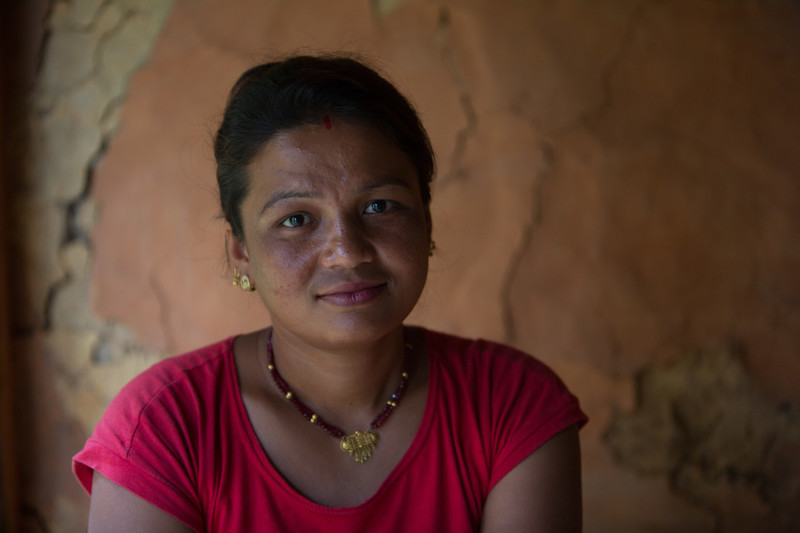
Waiting for an ambulance that never arrives: childbirth without medical help in rural Nepal
“When I was about to give birth, we called for an ambulance or a vehicle to help but even after five hours of calling, no vehicle arrived,” recalls 32-year-old Mona Shrestha. “The birth was difficult. For five hours I had to suffer from delivery complications.” Mona’s story is a familiar one for women in rural Nepal. Like thousands of women across the country, she lives in a small, remote village, at the end of a winding, potholed road. There are no permanent medical facilities or staff based in the village of Bakultar: medical camps occasionally arrive to dispense services, but they are few and far between. Life here is tough. The main livelihood is farming: both men and women toil in the fields during the day, and in the mornings and evenings, women take care of their children and carry out household chores. The nearest birthing centre is an hour’s drive away. Few families can afford to rent a seat in a car, and so are forced to do the journey on foot. For pregnant women walking in the searing heat, this journey can be arduous, even life-threatening. “Fifteen years ago, there was a woman who helped women give birth here, but she’s no longer here,” Mona says. “It’s difficult for women.” Giving birth without medical help can cause severe problems for women and babies, and even death. Infant mortality remains a major problem in Nepal, and maternal mortality is one of the leading causes of death among women. Only 36% of births are attended by a doctor, nurse or midwife. A traumatic birth can cause long-term physical, psychological, social and economic problems from which women might never recover. Access to contraception and other family planning services, too, involves walking miles to the nearest health clinic. Mona says she used to use the contraceptive injection, but now uses an intrauterine device. Like many villages in Nepal, Bakultar is awash with myths and gossip about the side-effects of contraception. “There are so many side effects to these devices – I’ve heard the coil can cause cancer,” Mona says. “This is why we want to have permanent family planning like sterilisation, for both men and women.” These complaints heard frequently in villages like Bakultar. As well as access to facilities and contraception, people here desperately need access to education on contraception and sexual health and reproductive rights. Misinformation as well as a lack of information are both major problems. “It would be really helpful to have family planning services nearby,” says Mona. Stories Read more stories from Nepal Ask for universal access to contraception!
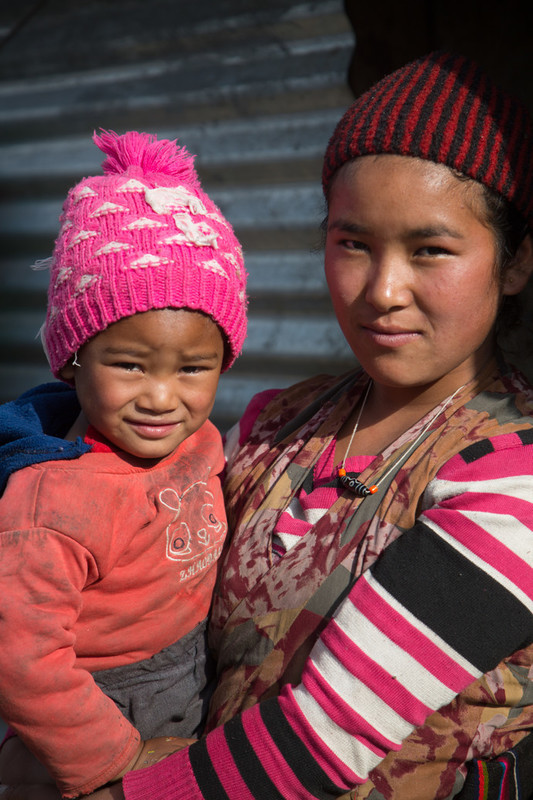
Forced into marriage at 16
High up in the mountains of Rasuwa in northern Nepal, close to the Tibetan border, is the village of Gatlang. This tight-knit village of traditional stone houses and Buddhist stupas is home to the Tamang people: a Buddhist indigenous group for whom family life is strictly patriarchal. Marriage traditions here can be oppressive: when a man chooses a wife, the girls – many are as young as 14 – have little choice but to marry. Most then go on to have large families, meaning food, money and education are spread sparsely. Jomini Tamang was just 16 years old when her parents forced her to marry. “I don’t want to get married,” she told them, but the wedding went ahead anyway. Jomini lives in Gatlang, a remote village of traditional stone and carved wooden houses, high up in the mountains of northern Nepal, close to the Tibetan border. The people here are Tamang, a Buddhist ethnic group, and family life is strictly patriarchal. Many Tamang marry young – from around 14 years old – and girls tend to be pushed into marriage by both their parents and the young men who choose them. “It’s not easy being married, it’s difficult,” says Jomini, whose husband is eight years older than her. “When I got married, I didn’t know anything about what happens after marriage, about the physical side.” After a year of marriage, Jomini had her first child, a boy called Gauran, who is now two. Women like Jomini are expected to combine childcare with household chores and long shifts farming vegetables in the village fields. “After the birth, I had many difficulties. Bringing up a child in this remote village was frightening and challenging, and Gauran was ill a lot". Giving birth at a young age can lead to severe physical complications or death, and maternal mortality is one of the leading causes of death for women in Nepal. Only 60% of women receive skilled antenatal support. Luckily for Jomini, shortly after Gauran’s birth, the Family Planning Association of Nepal (FPAN), Nepal’s leading family planning NGO, stepped in to help. Jomini met Pasang Tamang, a local woman who works as a reproductive health female volunteer for FPAN. Through Pasang, Jomini learned about different contraceptive methods and, with careful advice and support, was able to think through which might be best for her. She opted for the contraceptive injection, and says she is much happier now: contraception has given her more freedom, and the space to think clearly about when to have another child. Jomini’s experiences have convinced her to do everything possible to enable her children to live happier lives, less constrained by patriarchy and marriage. If she has a daughter, “I will tell her not to get married at an early age like her mum, and that if she does, she will suffer,” she says. “I will advise her to study more so she can work.” “And I will advise my son the same! Study more and wait til you are more mature to get married.” Stories Read more stories from Nepal
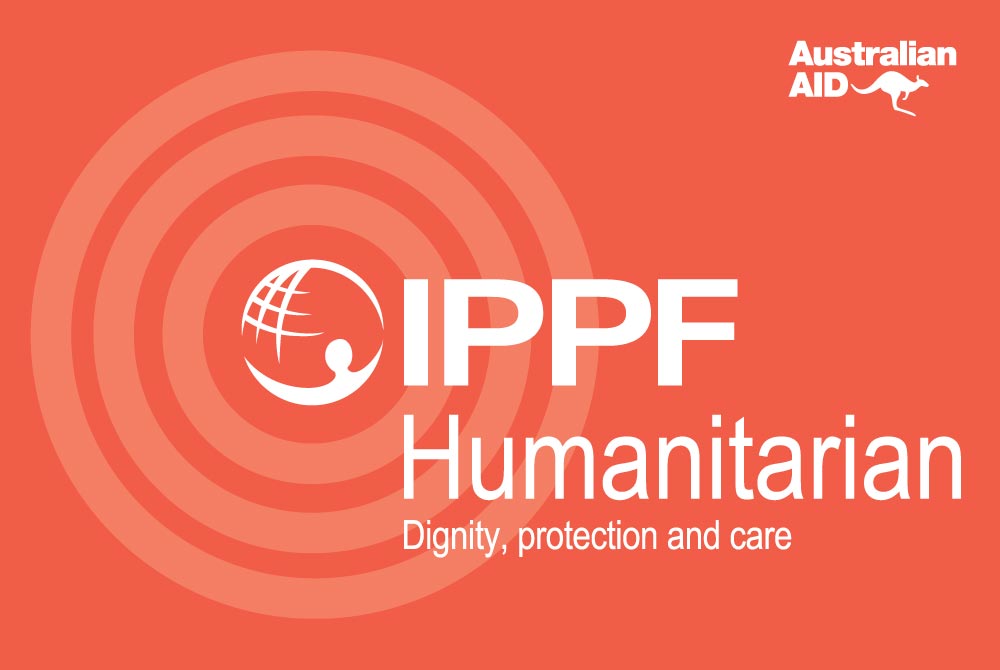
Supporting women during humanitarian crisis
The Australian Parliamentary Group on Population and Development (APGPD) welcomes the commitment by the Australian Government to continue funding the International Planned Parenthood Federation’s work with women during humanitarian crises. Over 800 women and girls are dying every day from complications in pregnancy and childbirth. Three in five preventable maternal deaths occur in conflict, displacement and natural disasters. When disasters hit we must not forget women still need access to safe birthing spaces, family planning services, and protection against sexual violence. Since commencing in 2007 the IPPF SPRINT (Sexual and Reproductive Health Program in Crisis and Post-Crisis Settings) initiative has supported over 890,000 people through times of disaster including in Fiji, Nepal and Vanuatu. The APGPD is pleased to see the Australian Government continuing to support women in accessing sexual and reproductive health services. While other countries are pulling back and leaving women and children vulnerable it is vital Australia continues to show global leadership focused on gender equality. Access to reproductive health services is a key component of women’s empowerment, with better health outcomes leading to better education and economic outcomes for all. The Australian Parliamentary Group on Population and Development (APGPD) is a cross-party group of parliamentarians who work collaboratively to champion sexual and reproductive health and rights, gender equality and women’s empowerment globally. The APGPD was established in 1995 as part of a global network of parliamentary groups and is a member of the Asian Forum of Parliamentarians on Population and Development.

Extended Mexico City Policy detrimental to health care of world's poorest
Mexico City Policy will have a devastating impact for International Planned Parenthood Federation (IPPF) with its extension far beyond family planning. Restrictions into support for HIV, maternal health and infectious diseases programmes will mean that millions will be denied lifesaving healthcare they need. The policy will hit hardest, the women living at the margins of society – the poorest, the most remote and those under 25. The Global Gag Rule, also known as the Mexico City Policy, denies US funding to organizations who provide any abortion related services, including counselling, even when such services are legal in a national context. IPPF has a special focus on working with the world’s most poor and vulnerable and tailoring services to meet their needs. At country levels, the US funding loss will reduce or halt IPPF’s services and arrest opportunities to scale up, build capacity and reach more people. Tewodros Melesse, IPPF Director General, said in reaction, “For over 30 years, the Mexico City Policy has played politics with women’s lives. It is a cynical attempt to silence the choice and voice of the world’s poorest women. As a champion for them and people everywhere, we will not be held back. "This extended policy covers every aspect of IPPF’s work with the world's poorest people. It also fails in its stated intent to reduce the global incidence of abortion. With the expansion of its restrictions to work on broader health efforts it is short-sighted and dangerous, and threatens years of IPPF gains to advance the health and well-being of communities and undercuts health care access for millions worldwide.” The extended policy will now affect IPPF’s long record of working on HIV prevention in more than 20 countries covering Africa and Latin America often providing clients integrated sexual and reproductive health care services. The Global Gag rule could also endanger emergency funding for Zika prevention, education and health services in Latin America and the Caribbean, where the epidemic continues to rage. Examples of Country Impact: Barbados: IPPF partner Barbados Family Planning Association receives funding from the U.S. government to provide HIV prevention and education services to at-risk, hard-to-reach populations including men who have sex with men. The Caribbean has the second-highest HIV prevalence rate among adults after Sub-Saharan Africa. Nepal: IPPF aims to increase voluntary use of family planning services by increasing accessibility and availability of quality comprehensive family planning services to the hard to reach, disadvantaged, poor and adolescent populations in 11 districts and increase access to voluntary family planning information, education, and services. Nepal has failing and patchy family planning coverage which is often only available at certain times of the year. IPPF are working closely with the government to expand and strengthen static clinics in selected district hospitals, health posts and health facilities with birthing centers to reach all year round, reaching eligible couples with high unmet need. Malawi: The Family Planning Association of Malawi are providing much needed integrated family planning and HIV prevention to young adolescent and women in Malawi via clinics and outreach teams travelling to communities to raise awareness and offer services for vulnerable young women to prevent and treat sexual gender based violence, HIV infection and access to family planning. Without funding they will no longer be able to provide or expand this vital information, support community learning and offer both family planning services and treatment for sexual and gender based violence in one place. The rule blocks critical funding for health services like contraception, maternal health, and HIV prevention and treatment for any organization that refuses to sign up to it. For IPPF, it means foregoing US$100,000,000 that would be directed to proven programmes that provide comprehensive sexual and reproductive health services for millions of women and girls who would otherwise go without vital services that save lives. IPPF is the world’s largest women’s health network with members in 170 countries with over 45,000 service delivery points delivering over 300 services a minute. Individuals can donate to IPPF’s online appeal www.ippf.org/donate WANT TO GET INVOLVED? SUBSCRIBE NOW TO GET UPDATES FROM IPPF SUPPORT OUR WORK WITH A DONATION JOIN OUR THUNDERCLAP View my Flipboard Magazine.

SIFPO2: Family Planning Association of Nepal
Established in 1959, FPAN, a member association of IPPF, is Nepal’s first national sexual and reproductive health service delivery and advocacy organisation. Family planning service strengthening programme (FPSSP) is a project under USAID’s cooperative agreement with IPPF and FPAN to dramatically increase access to voluntary family planning (FP) information, education and services throughout Nepal. More specifically this project is increasing access to FP services and strengthening the Nepal health system by: Increasing access of a range of voluntary FP methods for marginalized and disadvantaged populations. Increasing public sector provider capacity for delivering FP services through task shifting initiatives at multiple levels of the health system Ensuring quality voluntary FP services through on site coaching and mentoring at the health facility level Supporting FP commodity security throughout the public health sector Results to date: 605 Ministry of public health facilities in 11 districts are supported by the project throughout Nepal by strengthening and increasing access of voluntary family planning services, including support for basic medical supplies to ensure services are available. Over 41,000 family planning services delivered to men and women in Nepal in hard to reach areas. Supported MoH in delivering 63,854 couple years of protection (CYP) in addressing the unmet need for voluntary FP services by offering a full mix of methods. These services were offered through the mobile outreach services delivery network, established community clinics and a force of Reproductive Health Female Volunteers (RHFVs). 257 health care workers trained and operating in 165 public health facilities to provide long acting and reversible methods of voluntary family planning as part of their FP method provision to improve FP method choice for all clients. 54 health workers trained on comprehensive voluntary FP counselling to increase awareness of available FP services. Collaborating with partners on social and behaviour change communications to increase awareness of voluntary FP services within the communities More than 400 mobile family planning clinics days provided by three mobile outreach teams offering a range of comprehensive family planning services in the poorest and hardest to reach regions of Nepal, bringing voluntary FP services closer to the client where they would not have otherwise had access. 7 community clinics capacity built to ensure a broad range of voluntary FP methods are available in communities with highly marginalized and disadvantaged populations Commodity security prioritized throughout service delivery channels to ensure commodity availability at all levels of the service delivery spectrum. Reproductive health female volunteers mobilized to provide comprehensive voluntary family planning information is communicated at the community level The Support for International Family Planning Organizations 2 – Sustainable Networks project is a five-year cooperative agreement funded by the U.S. Agency for International Development under Agreement No. AID-OAA-A-14-00038, beginning May 13, 2014. The information provided in this document is not official U.S. government information and does not necessarily represent the views or positions of the U.S. Agency for International Development.
Pagination
- Previous page
- Page 4
- Next page







